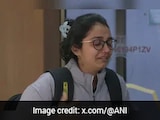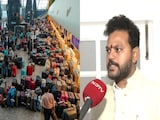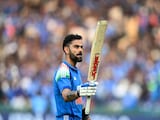AIIMS Delhi has recorded cases of children as young as 10 and hailing from arid regions suffering from glaucoma, with doctors attributing this to prolonged use of steroid-based eye drops for treatment of ocular allergies without supervision.
Almost half of these cases reach the hospital in the advanced stages of glaucoma the doctors said, emphasising the need for judicious and supervised use of such eye drops.
Dr Tanuj Dada, professor in-charge of the Glaucoma Unit at RP Centre for Ophthalmic Sciences, AIIMS stressed that any prolonged use of steroids can lead to blindness from glaucoma.
Steroids used in various forms like eye drops, skin creams, nasal inhalers, tablets and injections can increase intraocular pressure which leads to damage of the optic nerve.
"The main cause of undetected glaucoma in children is unrestricted use of steroid eye drops for chronic allergic conjunctivitis. Every month at AIIMS RP centre, we get children aged 10-15 years hailing from arid regions and rural areas such as Rajasthan and Haryana suffering from advanced stages of steroid induced glaucoma," Dr Dada said.
When children in these regions develop redness and eye irritation due to dust and pollen, they go to a local village doctor who prescribes steroid-based eye drops which alleviates the symptoms for the time being.
"But when the symptoms resurface, they again take those eye drops and keep on using them without any supervision which leads to development of glaucoma " Dr Dada explained.
As initially there are no symptoms of glaucoma, these children often present to us in very advanced stages with severe visual impairment or even blindness, he said.
Similarly inhalers used for asthma, chronic lung conditions and for allergic rhinitis and sinusitis may lead to increased eye pressure and also worsen glaucoma in patients already affected by the disease.
Even the short term usage of such inhalers are especially dangerous in patients already having glaucoma as that can further complicate their condition, said Dr Dada.
Generally adult onset glaucoma develops after 40 years and those having a family history of glaucoma diabetes, hypertension and cardiac diseases or any history of trauma to the eye are more at risk of getting it, he said.
Brigadier Dr Sanjay K Mishra, professor and head of Ophthalmology at the R&R Hospital, Delhi warned against usage of dermatological steroid creams for getting fairer skin and use of steroid injections for muscle building among athletes stating these can lead to very serious kind of glaucoma.
"The creams used on the face and around the eyes which contain steroids may lead to glaucoma and people should be very careful," Dr Mishra said.
Steroid-based eye drops and creams should never be used without a qualified doctor's prescription, he emphasised.
Dr Dada further said increase in stress hormone called cortisol can also lead to rise intraocular pressure leading to ocular hypertension.
In such cases besides, medical therapy meditation focused on breathing can play an important role in lowering the stress and intra-ocular pressure, he pointed out.
Doctors said that patients taking steroids in any form for more than six weeks should be screened for glaucoma.
"Glaucoma is a silent thief of vision as it progresses without symptoms, making regular eye check-ups crucial, especially for those over 40 or with risk factors like diabetes, high blood pressure, or a family history of the disease," Dr Dada said.
Emphasising the need for lifelong care, he said, "Once diagnosed, one must use eye drops for life. Stopping treatment can lead to further vision loss. New laser treatments and surgeries can help, but unlike cataract surgery, glaucoma surgery only preserves remaining vision; it cannot restore what is lost." Dr Praveen Vashist, Professor and Officer in-Charge of Community Ophthalmology at RP Centre, highlighted the need for nationwide screening.
"Most people with glaucoma don't know they have it. We need more awareness and screening programs at the primary care level," Dr Vashist said AIIMS operates 21 vision centres offering AI-based glaucoma detection tests, he said while seeking the expansion of such facilities across India.
He also emphasized that early detection of glaucoma and starting treatment is the key to preventing blindness from this disease
(Except for the headline, this story has not been edited by NDTV staff and is published from a syndicated feed.)















